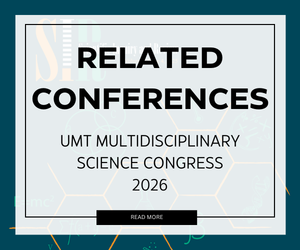Asthma as a Respiratory Disorder
A Review
Abstract
 Abstract Views: 139
Abstract Views: 139
This article reviews causes, symptoms and genetic basis of asthma as well as the pharmaceutical therapies currently being practiced for its treatment. Asthma is a worldwide respiratory disorder characterized by recurring conditions of inflammation and the narrowing of respiratory passage ways termed as bronchoconstriction, bronchial hyper-responsiveness, bronchospasm, chest tightening, shortness of breath, etc. About 300 million people suffer from asthma globally with 250,000 annual deaths attributed to asthma. In many populations, the main cause of an increased occurrence of asthma is the lack of awareness among
general public. Smoking, allergens, microbes, pollutants, dust, chemicals, vapors, fumes, exercise etc. act as stimulants and triggers of asthma. Various gene-gene and genetic-environmental factors act together resulting in asthmatic pathogenesis. Various loci have been identified that play a potential role in this regard. Genetic polymorphism among patients makes the treatment a bit difficult as patients with similar symptoms show varied responses to the same medications and therapeutic strategies. Asthma is not completely curable; therefore, most medications aim to lower the exacerbations rather than fixing the underlying causes and mechanisms of the disease. Short and Long Acting Beta-antagonists (SABAs and LABAs) and inhaled corticosteroids (ICS) have been found to be effective against asthma. Phytomedicines and biological agents such as omalizumab are being developed currently for the modulation of asthma-related immunologic and cell-signaling mechanisms. Asthma and psychological disorders are often found to be correlated. The need arises for greater public awareness regarding asthma, improved genetic analysis techniques, assessment of underlying molecular mechanisms, optimization of current therapeutic strategies and the development of new personalized target drugs for its efficient prevention and control.
Downloads
Copyright (c) 2019 Sadia Sidra Aziz, Razia Iqbal

This work is licensed under a Creative Commons Attribution 4.0 International License.







